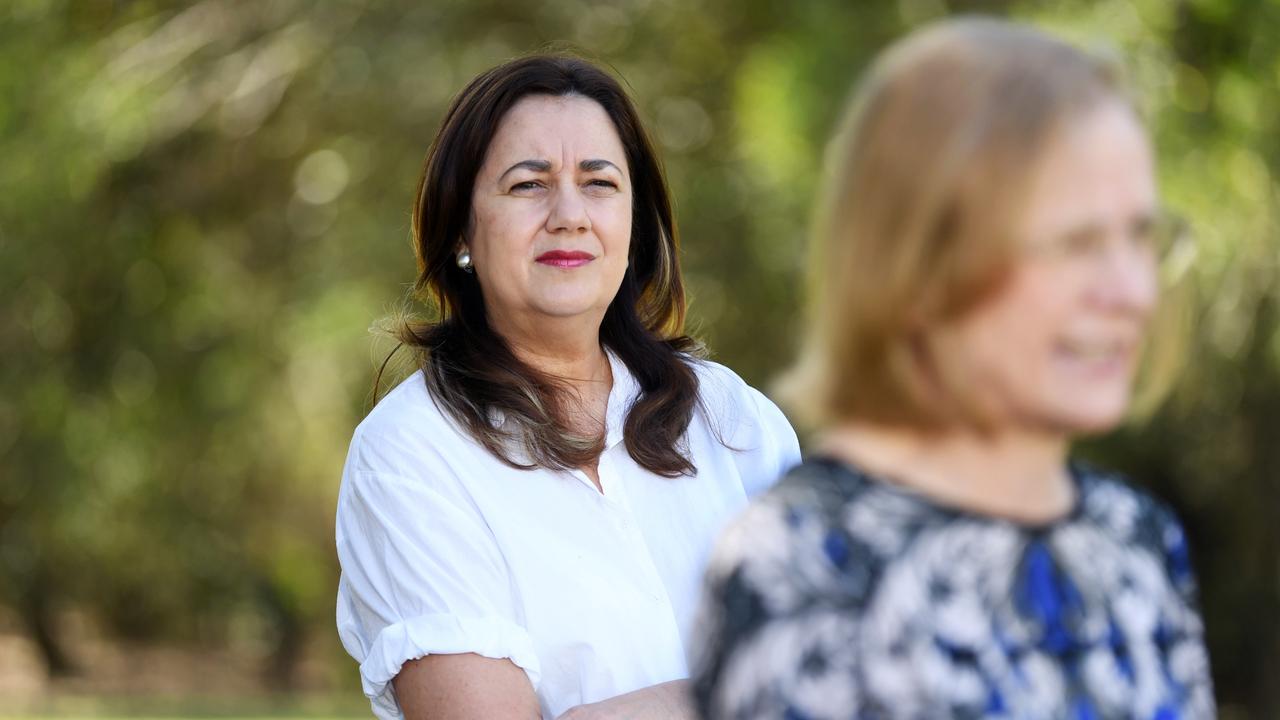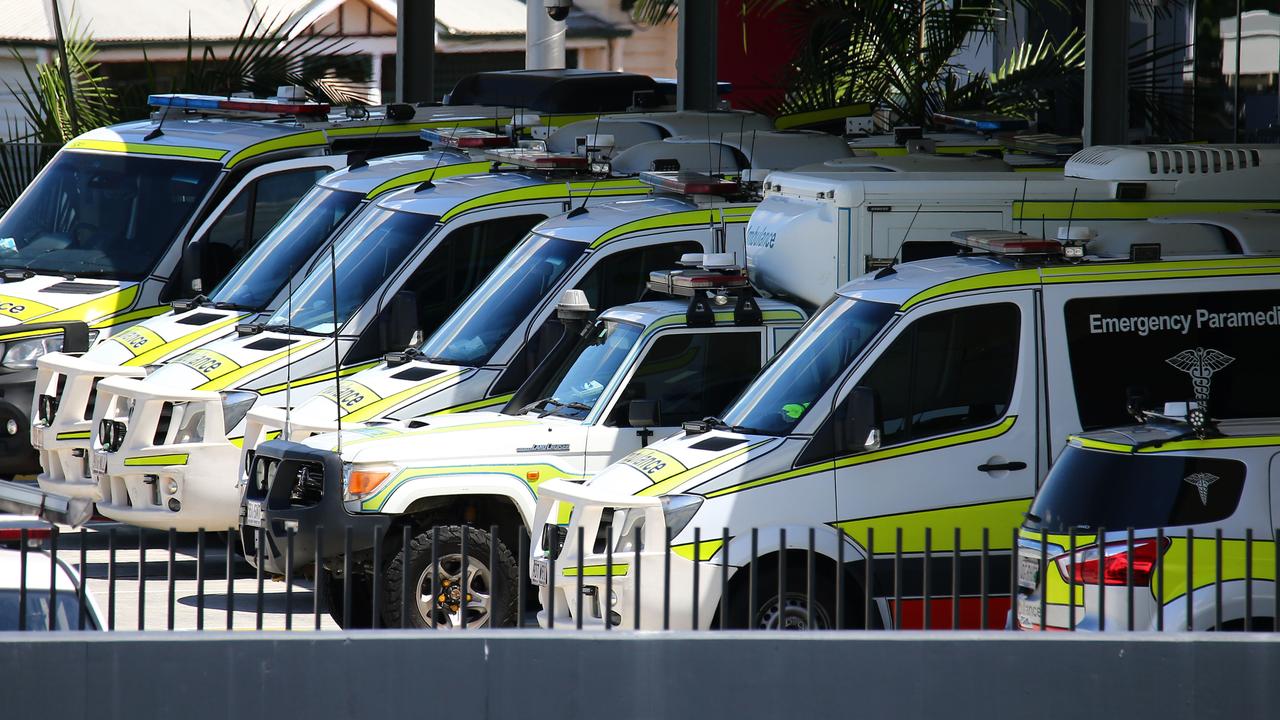Docs demand data to help prepare for Covid case surge
Queensland’s doctors have initiated crisis talks as fears rise that the hospital system will collapse under the burden of Delta cases when the state’s borders open.
QLD News
Don't miss out on the headlines from QLD News. Followed categories will be added to My News.
A crisis meeting of the state’s emergency specialists, surgeons and doctors will be held this week as fears rise that the hospital system will collapse when borders open and there is an inevitable infiltration of Delta.
The Australian Medical Association has organised the meeting amid continuing confusion around whether Queensland is ready for the pandemic and bleak warnings doctors may need to choose between lives if enough people don’t get vaccinated.

Ms Palaszczuk then suggested Queensland was ready, but she did not have a “crystal ball” to tell her how everything would play out.
Roundtable chair and emergency physician Dr Kim Hansen said there was a real threat of hospitals being overwhelmed and doctors wanted more detailed information, like the number of beds available that are actually staffed, to create an action plan.
AMAQ president Dr Chris Perry said doctors would face difficult decisions if hospitals he described as “too small and too squeezed” couldn’t cope.
“Do we keep ventilating a 50-year-old anti-vaxxer with Covid, or do we ventilate the 40-year-old mother of two who’s just been in a motor vehicle accident?” he said.
“We will have a problem if we open up too soon.
“We’ll have to make some hard decisions about who does and doesn’t get treated and how long you ventilate somebody.
“The more herd immunity we’ve got, the less likely we’ll have a run on the hospitals.”
Infectious disease expert Prof Paul Griffin said Queensland was heading into the toughest stage of the pandemic and hospitals must not be caught off-guard.
When we hit 80 per cent vax rate, 20 per cent of population is still at risk of hospitalisation. That’s a lot of people,” he said.
“We already hear stories that hospitals are at capacity.”

Dr Hansen said hospitals needed to be at 90 per cent capacity to allow the flow of those in emergency departments through the hospital system.
“It’s imperative we have an action plan developed this year but we must be equipped with data and collaboration,” the ED doctor said.
“We need to have a full understanding of how big the problem is, so we can develop tangible ways to improve the situation.
“We need real-time data from Queensland Health on the number of beds in each hospital ward across the state for emergency patients with teams to support the patients.
“It’s not the total number of beds overall, it’s the number that are available and staffed for emergency patients that matters,” she said.
The roundtable has also asked the Queensland Ambulance Service to provide more detailed information on ramping, with current information only showing if an ambulance waits more or less than 30 minutes.
Asked about hospital preparedness on Sunday, Ms Palaszczuk said: “I don’t think any hospital in the country would say they’re ready.”
Asked why Queensland wasn’t ready, she said the whole nation was working on a plan, and Dr Young had been preparing, but “everyone should understand that these are very, very difficult times”.

She said work was being done to identify aged care and disability patients who should be moved out of hospitals to free up bed capacity.
But two minutes later, Dr Young said while the pandemic would intensify requirements, “our hospital system is ready”.
“So it’s ready, it will manage it,” she said, adding that intensive care capacity had been doubled and could be increased further, staff had been trained and a lot of additional equipment, like ventilators, had been purchased.
Questioned on the opposing opinions, Ms Palaszczuk then said: “What I mean is that there is a global pandemic, all right?”
“So we don’t know what the future holds, so Dr Young has had everything prepared, the health system is prepared.
“But I don’t have that crystal ball, so we just have to do everything we can within our capability (and) we’ll learn from what happens in NSW and Victoria over the coming months.
“But what we’ve seen around the world is that you end up having very tired workforces … so these are extraordinary times and we are preparing as best as we can.”
International examples have shown that an influx of Covid-19 cases can cause the cancellation of elective surgeries.
“We need innovative collaboration across the public and private sectors to provide elective surgery solutions now, not when we are in a deeper crisis,” Dr Hansen said.





